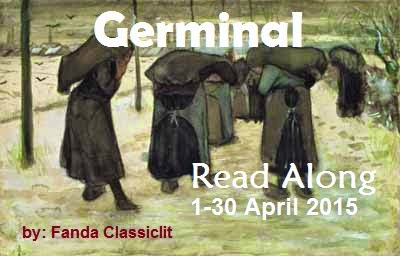Okay, so I
was wrong—Gulliver’s Travels turned out NOT ONLY about Liliput! And it is
certainly not a children’s book, although the Liliput part is often adapted
into children’s tales. It is written as a travel journal of a navy surgeon
called Lemuel Gulliver. He joined several ships, but bad luck forced him to be
stranded on strange lands. Liliput was only his first part of adventure, where
he found himself in a land inhabited by a race of tiny people: Liliput. He
finally could get home but not long after, involved in another sailing ship. He
was abandoned by his companions, and soon found himself in the midst of a
gigantic race of Brobdingnab. Gulliver’s next adventure was in a floating
nation of Laputa, after his ship was being attacked by pirates. But the most
inspiring journey, both for Gulliver and for his readers), might be that in the
country of the Houyhnhnms—a race of talking horses.
As Gulliver
has often mentioned throughout the book, his journal was not intended to amuse
readers with fascinated adventures, but rather to introduce them of other civilizations
so that we can learn to be a better race. I think Swift wrote it to satirize
the political situation and humanity values at that time. The way Gulliver was
stranded among, first, tiny people; then gigantic race, showed how superiority
and inferiority stand among us—it’s not about who we are, but with whom we
live. When Gulliver was in Liliput, he urinated on their castle on pretext of
extinguishing the fire, without much remorse. But when he was in Brobdingnab,
Gulliver became much more sensitive and was easily offended by (what the Brobdingnab
people thought as) some trifles.
Gulliver’s changes
of mood between adventures showed how we are strongly influenced by the
society. When he was at Liliput, he boasted about his native country, England,
and thought the Liliputians as unscrupulous. But when he was with the Houyhnhnms,
he began to think of his fellows as disgusting. It also showed that humans are
molded by habits; the longer you take it, the longer you can shake it. I didn’t
take particular notes, but I think Gulliver’s stay in Houyhnhnms was longer
than his others’, and so it was hard for him to get used to live in his old
civilization.
Although
Swift presented us a lot of fascinated adventures in strange lands, it is not
easy to enjoy this book. Maybe because it was intended to be a journal, with
flat and monotonous sentences, and with many statistics and scientific methods;
which fittingly placed Gulliver’s Travels
in Enlightenment lit category.
Three stars
for Gulliver’s Travels.
~~~~~~~~~~
I read Penguin English Library paperback
This book is counted as:
5th book for Literary Movement Reading Challenge (Enlightenment)
90th book for The Classics Club Project







